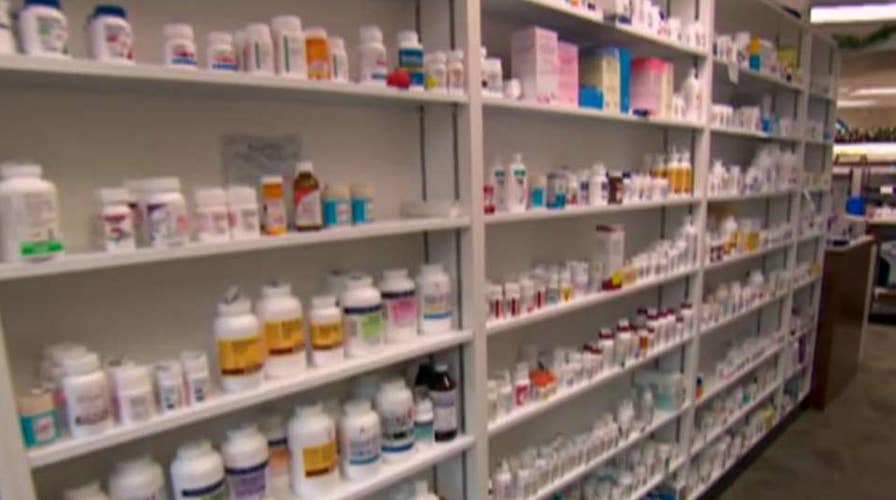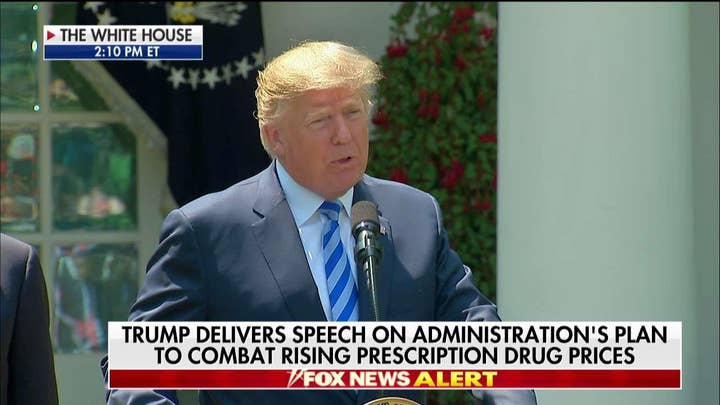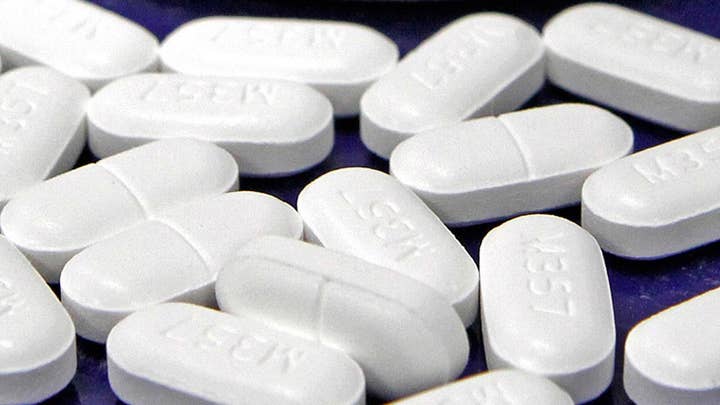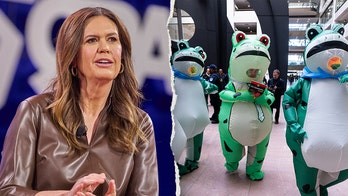Trump unveils sweeping plan to lower prescription drug costs
President aims to make good on campaign promise by attacking the problem on multiple fronts; chief White House correspondent John Roberts reports from Washington.
President Trump on Friday unveiled his administration’s plan for lowering prescription drug prices, vowing to “take on” the powerful pharmaceutical industry while calling for an end to “global freeloading” that has allowed foreign countries to pay less for American medicine.
“America will not be cheated any longer, and especially will not be cheated by foreign countries,” Trump said Friday in a Rose Garden address.
Trump said Americans, through higher drug prices at home, are essentially subsidizing the “enormous cost of research and development” for the benefit of other countries getting those drugs for cheap.
“In some cases, medicine that costs a few dollars in a foreign country costs hundreds of dollars in America for the same pill, with the same ingredients, in the same package, made in the same plant,” Trump said. “That is unacceptable.”
Said Trump, “It's unfair. It's ridiculous. It's not going to happen any longer. It's time to end the global freeloading once and for all.”
Trump said he's directing his top trade official to correct this "injustice" with U.S. trading partners.
Trump's “American Patients First” blueprint includes several other tactics for lowering notoriously high drug prices in the U.S.
The plan calls for increasing competition, creating incentives for drugmakers to lower initial prices and slashing federal rules that make it harder for private insurers to negotiate lower prices.
“Today my administration is launching the most sweeping action in history to lower the price of prescription drugs for the American people,” Trump said.
The president also had tough words for America’s pharmaceutical industry, saying he plans to “take on one of the biggest obstacles to affordable medicine, the tangled web of special interests.”
“The drug lobby is making an absolute fortune at the expense of American consumers,” he said. “No industry spends more money on lobbying than the pharmaceutical health products industry.”
Top officials at the Department of Health and Human Services also focused on the imbalance between drug prices at home and overseas, writing in a Fox News op-ed that “foreign countries and their government-run health-care systems bully our drug manufacturers into unrealistically low prices, allowing other countries to freeload off of American innovation.”
“Americans should be able to reap the rewards of living in the country that has brought the world more new drugs than any other,” wrote HHS Secretary Alex Azar, Food and Drug Administration Commissioner Scott Gottlieb and Centers for Medicare & Medicaid Services Administrator Seema Verma.
Trump’s plan, though, will not include giving the federal Medicare program power to directly negotiate prices with drugmakers. Trump campaigned on the idea, which is vigorously opposed by the pharmaceutical industry.
Democrats hit him over the issue Friday.
“Instead of putting forth a bold initiative, the president pulled his punch,” House minority leader Nancy Pelosi, D-Calif., said in a statement. “The president is breaking his promise to the American people to allow Medicare to negotiate lower drug prices, which would save seniors billions of dollars at the pharmacy.”
Public outrage over drug costs has been growing for years, because Americans are being squeezed in a number of ways: New medicines for cancer and other life-threatening diseases often launch with prices exceeding $100,000 per year. Drugs for common ailments like diabetes and asthma routinely see price hikes around 10 percent annually. Meanwhile some companies have been buying up once-cheap older drugs and hiking prices by 1,000 percent or more.
Fox News’ Laquasha Banks, Mike Emanuel and Kristin Brown and The Associated Press contributed to this report.














































